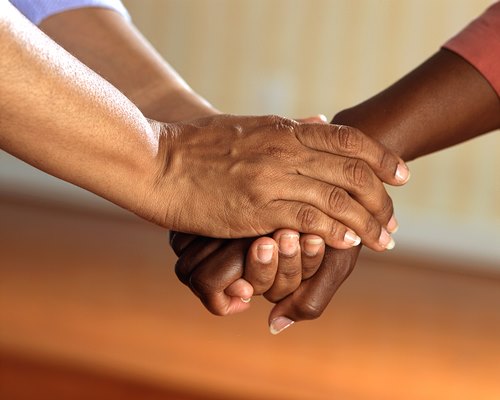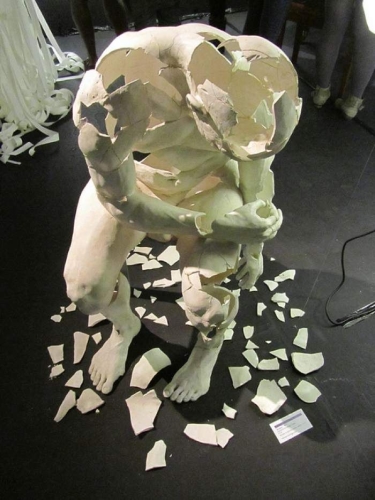
I think non-attachment really stems from a misunderstanding of things being permanent. When we attach to something, we suffer (and others suffer), because we’re holding onto things as they are. And we have to remember that things change.
By Nina Rubin
In November, I got a temporary job in San Diego.
Let’s backtrack even further for context. About five years ago, I wrote a living vision and claimed that I’d like to live in the fine city of San Diego. I didn’t make that happen and, instead, moved multiple times to the edges of Los Angeles County. I did everything I could to be near LA without being in it anymore. So after my two most recent moves, I decided it was time to put feelers out and see if I could make a temporary home in San Diego. A job came across the radar that sounded interesting and within my field so I applied on a whim. The same day, the recruiter called and I had my first round interview and was promoted to a second round, which was an in-person interview with the company itself and I wasn’t sure if I’d get hired.
Ten days later, I got the temporary offer and accepted.
In late November, I started working at an Employee Assistance Program with very large corporate accounts and multiple offices. The job began and took shape. I found my voice and began the real work at the end of December. From then until now, I’ve worked a full-time job while also managing to grow my personal client base. I’ve been busy and very fulfilled.
Nearly daily, one of my co-workers has asked me if I’m going to stay with the company. And my reply has been, “we’ll see.” Not lacking interest, but uncertainty, I’ve spoken in vague terms. I haven’t been sure if I want to stay in San Diego or come back to LA. But lately, the longer I stay here, the more I want to stay. This temporary home has begun to feel really good.
Which brings me to non-attachment, a theory I spent a lot of my life reading about, but most of it unable to practice.
I wasn’t certain for a long time about many areas of my life. I had finally chosen something—I had wavered and floundered long enough. But it’s different this time around. You see, my life has felt up in the air for about a year. Realizing I could hold on tightly or loosen my grip, I opted to accept that time would help me find my answers. I remembered that I have control over some things and have to wait and let go of other things.
I never knew I could keep going without a solid plan in place. I thought everything had to be set, on a timeline and I’d know my next moves. As a recovering perfectionist, I typically chart my course. But now that I’m in recovery, I’m becoming more open to letting things play out. I’ve been practicing non-attachment.
There are common misconceptions about non-attachment. The type of non-attachment I’m referring to has less to do with what you own, or with what you hold on to, versus how that holds onto you. So, for instance, I heard the quote, “non-attachment doesn’t mean we don’t own things. It means we don’t allow things to own us.” That, in a nutshell, is the type of non-attachment I’m talking about. A Zen Master simply said “Everything breaks. Attachment is our unwillingness to face that reality.”
Here, we can talk about items like glass vases cracking or gold necklaces breaking at the clasp. We can talk about losing a sentimental talisman and feeling despair that it’s no longer in our possession. Or other things that bring us joy like a steaming cup of coffee from a local coffee shop but the storefront is closed on your day off. These are examples that feel like setbacks. We may have to spend more money to repair items, look for lost documents, temporarily stop wearing a necklace until we can get it fixed or go to another coffee shop for the latte. Spending extra money or wasting time can turn our moods sour. But they don’t have to.
I think non-attachment really stems from a misunderstanding of things being permanent. When we attach to something, we suffer (and others suffer), because we’re holding onto things as they are. And we have to remember that things change.
Change applies to jobs, relationships, friends, experiences, basically everything. Even our moment to moment experience of living, if we’re attached to it, can be the source of a lot of suffering for ourselves and others. By accepting the true nature of things as being impermanent, we ease our fears and we open our hearts. This understanding of impermanence benefits ourselves and others, as well. So don’t think of non-attachment as a form of indifference or a form of self-denial. Think of non-attachment as a way of not allowing things in your life to own or control you. Giving up the attachment to the permanence of things is the key understanding here.
Attaching ourselves to certain outcomes (“this relationship will lead to marriage” or “I’ll get a job offer at the end of my temporary assignment”) binds us like shackles or chains. Instead, consider non-attachment as a form of freedom. The opposite of non-attachment could be synonymous with freedom. Ideas, relationships, the present moment are all concepts of non-attachment and could be acknowledged in a much healthier way if we remembered the impermanence of everything.
In the olden days, I would have felt anxious without knowing what was coming, but lately I’ve felt so free. I haven’t dissolved without a plan. Rather, I’ve seen how much space and openness has occurred when I’ve done very little predicting. Sure, I’ve experienced moments of impatience, frustration and insecurity. But I have worked hard to entangle myself from these emotional states by avoiding the thought that everything would crumble when my job ended. I’ve allowed my own emotions to rise and fall, without feeding and fueling the drama.
Instead, I’ve had perspective. I’ve been able to see the forest through the trees.
Nina Rubin, M.A., is a native New Mexican living in Southern California. Coming from a long line of entrepreneurs, she runs her own Gestalt Life Coaching practice and is starting a food company called The Gourmet Therapist. Originally trained as a Gestalt Psychotherapist, Nina practices as a Gestalt Life Coach working relationally with clients in the present moment. Helping clients gain insight and awareness, identify their needs and create action plans to achieve their goals is her primary focus. An avid cook and baker, she is constantly trying new recipes and looks forward to hosting a breakfast pop-up restaurant. Having flirted with the idea of writing for many years, Nina writes for her blog, Afterdefeat. She is always trying something new or connecting with dear friends and can be found at Sunday meditation sanghas, yoga classes, playing scrabble, and hosting dinner parties. To learn more about working with her, visit Coaching by Nina Rubin.
Photo: (source)
Editor: Dana Gornall
Did you like this post? You might also like:
Comments
- Zen Buddhism and the Blues - April 5, 2024
- Escaping from Jehovah’s Witnesses through a Buddhist Path - March 24, 2024
- Getting to Know Holly Herring - February 29, 2024




